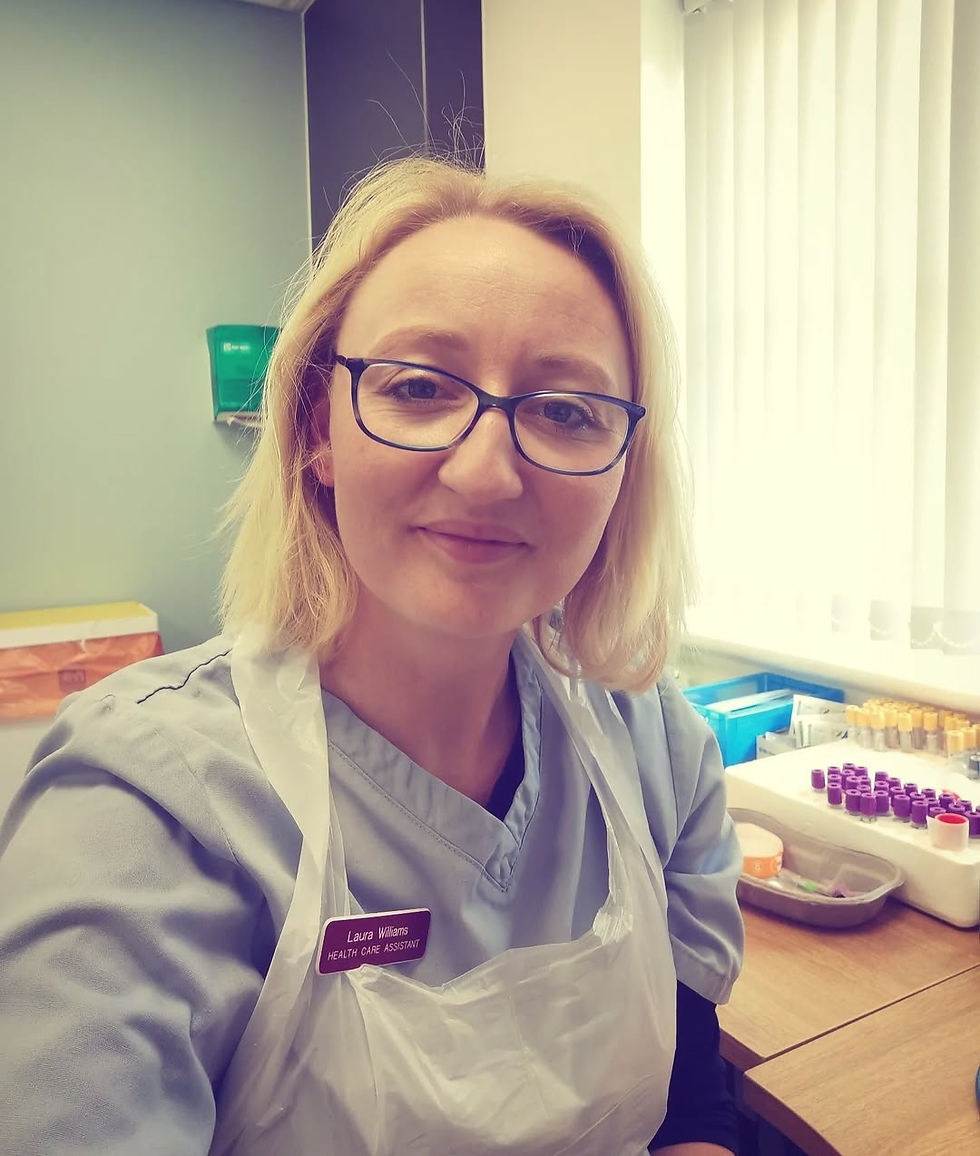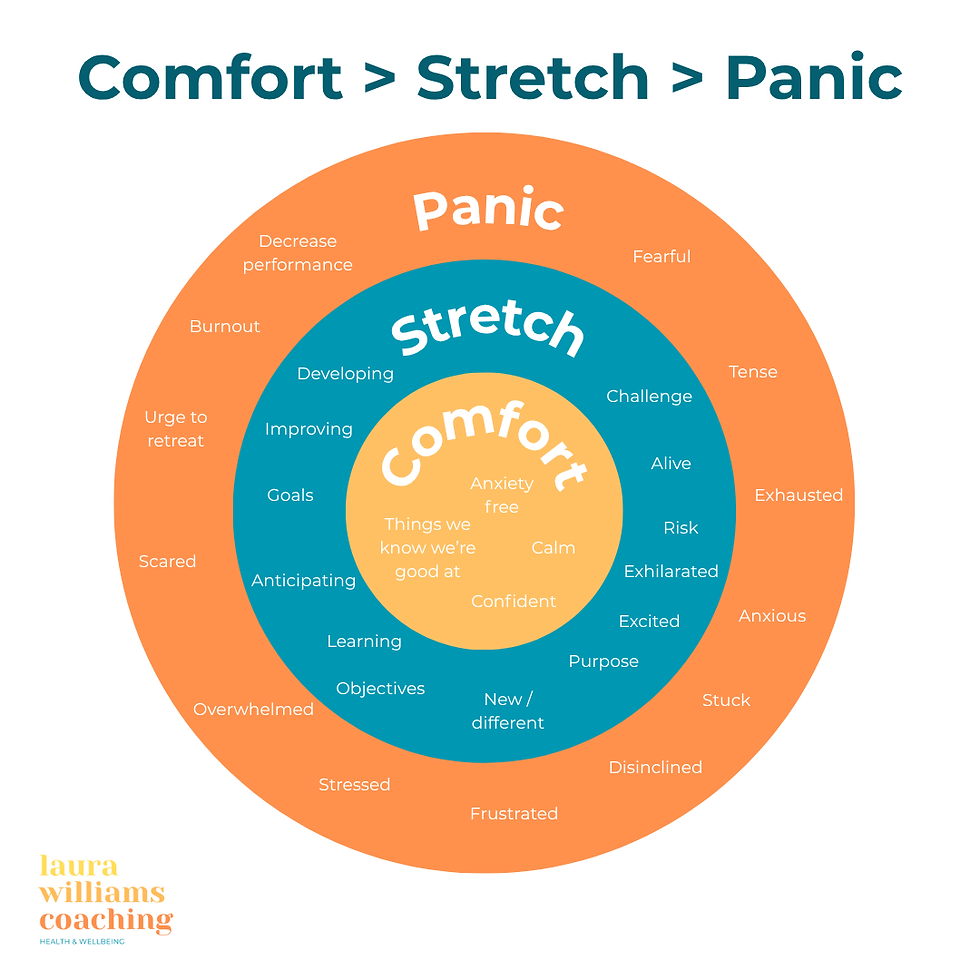From Advice to Action: Why I Became a Health Coach
- Laura Williams
- Aug 19, 2025
- 4 min read

In my early career as a Health Care Assistant in general practice, I saw the same pattern on repeat.
Every year, many of the same patients would come in for their long-term condition reviews. We’d run checks, talk through results, and I’d share clear, evidence-based advice: adjust nutrition this way, build movement that way, improve sleep, manage stress, take medications as prescribed. People listened. They asked good questions. They often left motivated and genuinely intending to act.
Twelve months later, too many would return with little changed.
Not because they didn’t care. Not because they were “non-compliant.” But because translating good advice into daily life is hard without the right support, structure, and accountability. Life is busy. Pain flares. Caring responsibilities take over. Stress builds. Motivation dips. The plan that sounded reasonable in the clinic doesn’t fit at 6pm on a rainy Tuesday when you’re exhausted.
After seeing this cycle for years, I started asking a different question: What would it take to help people follow through - consistently - in their real lives?
Finding a Better Way
During the pandemic, while working in primary care and home-schooling my children, I came across a health coaching programme in the US that matched what I was searching for: person-centred, evidence-informed behaviour change grounded in motivational interviewing, values-based goal setting, and practical tools that make change stick.
I trained at odd hours, on US time, around shifts and family life, qualified in 2021, and began coaching privately. Soon after, I brought coaching back into the NHS in a primary care setting.
What I witnessed confirmed what I’d suspected for years. When people are supported - not just advised - things start to shift:
Conversations move from “shoulds” to what matters most to the person.
Goals become smaller, clearer, and doable in the context of real life.
Barriers are named and problem-solved rather than ignored.
Accountability becomes gentle and constructive, not guilt-based.
Confidence grows as people see themselves achieving consistent, bite-sized wins.
The result isn’t a perfect overhaul. It’s steady progress that compounds.
What Changes in the Coaching Conversation
A typical coaching process is simple by design:
Where are you now? We understand the current picture - health, context, pressures, resources.
What matters most? Values, priorities, and personal reasons to change.
What’s one realistic next step? We anchor change to daily routines and make the first action small enough to do under stress.
What support will you need? We build systems: reminders, environment tweaks, accountability, troubleshooting.
What did we learn? We reflect, iterate, and keep going.
This isn’t about “more willpower.” If willpower alone worked, none of us would struggle. Coaching adds the missing scaffolding so advice can become action.
Upstream Thinking: Beyond Long-Term Condition Management
My attention naturally pulls upstream. Coaching isn’t only about helping people live well with long-term conditions; it’s about preventing ill health where possible and promoting health span - more years lived with function, purpose, and connection.
Prevention: Small, sustained changes in movement, sleep, stress, and nutrition make a measurable difference over time. Coaching increases the likelihood those changes stick.
Activation: Patients who feel confident, skilled, and supported engage better with their care plans and navigate the system more effectively.
Equity: Coaching creates a judgment-free space for people who often feel unheard or overwhelmed. It’s a practical way to reduce gaps in access and outcomes.
Easing Pressure for Clinicians and the System
Coaching doesn’t replace clinical care; it complements it.
GPs and nurses are skilled and time-poor. Ten minutes isn’t long enough to explore motivation, values, beliefs about change, or the realities of someone’s week. Coaches bridge that gap:
We translate clinical guidance into doable steps.
We provide continuity between appointments.
We troubleshoot when life gets messy.
We feed back meaningful progress to the team.
This reduces repeat visits for the same stuck problems, supports personalisation in practice, and improves outcomes that matter to both people and the system.
Community: Change That Spreads
One of the most promising routes I see is group coaching. Groups build skills, confidence, and momentum - and they add something the clinic can’t always provide: community. People learn from each other, normalise setbacks, share solutions, and create informal support networks that last beyond the programme. That’s good for individuals and good for the places we live.
Where I Am Now
Since qualifying in 2021, I’ve worked with many patients who moved from overwhelmed to engaged - setting realistic goals, building better routines, and regaining a sense of control over their health. Every story is different, but the through-line is the same: when people feel heard, not hurried, they’re more likely to participate actively in their health.
I’m soon to start a new role supporting NHS primary care staff wellbeing - because the people delivering care need sustainable ways to protect their own health too. Healthier teams deliver better care. It’s all connected.
Alongside that, I’m developing a Community Interest Company to offer free or grant-funded group programmes, with discounted one-to-one options for those referred by their GP. The aim is simple: make high-quality, person-centred health coaching accessible, so cost isn’t the barrier to getting support.
What I Believe
Advice is essential. It’s the starting point.
Support is decisive. It’s what turns the plan into practice.
Small steps win. Consistency beats intensity.
Partnership works. Clinicians, coaches, and communities are stronger together.
Upstream matters. Prevention and health span are worth the investment.
I became a health coach because I wanted to stop watching good people leave with good intentions and come back feeling like they’d failed. They didn’t fail. The system asked behaviour change of them without providing the structure to make it possible.
Coaching provides that structure. It’s practical, human, and it works - one real-life step at a time.
If you work in primary care, commissioning, or community health and you’re exploring ways to strengthen prevention, personalisation, or staff wellbeing, I’m always open to a conversation. And if you’re someone who’s been given good advice and needs help turning it into action, I see you. Support is not a luxury; it’s how change happens.




Comments